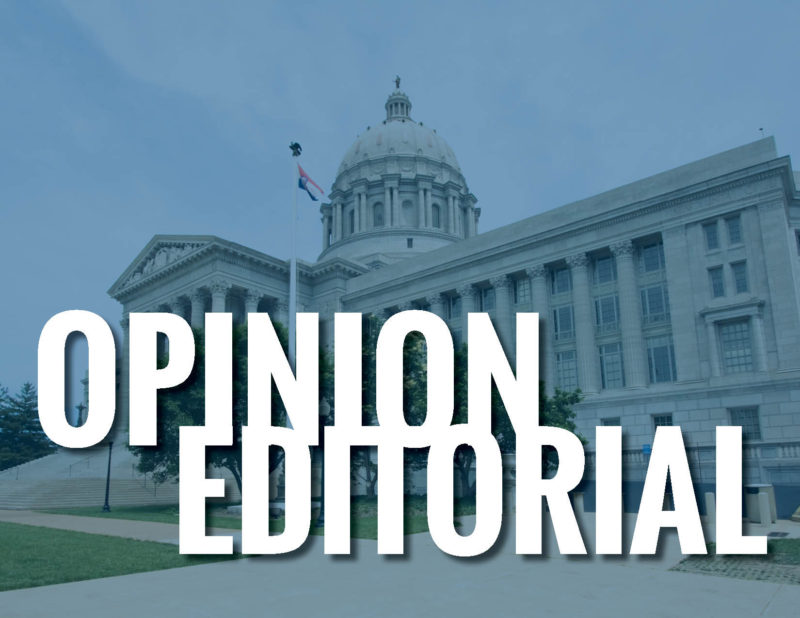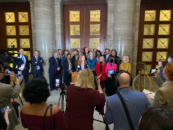Where will the money come from to pay for Medicaid expansion? That is the question that pro-Medicaid expansion groups can’t answer and don’t want you to ask.
On Aug. 4, Missouri voters have a critical choice to make. Voting for Amendment 2 would expand Medicaid to all able-bodied adults earning up to 133 percent of the poverty level, prohibiting the state from placing any additional restrictions on eligibility or enrollment standards, and crowding out resources from those Medicaid was intended for.
We can expand Medicaid, or we can save our state budget solvency. But we can’t do both.
Medicaid already accounts for 39 percent of Missouri’s total budget. Expanding this program even further would be a financial disaster for Missouri, enrolling nearly 600,000 people and costing the state about $349 million each year, or about $1.7 billion over the next five years. The money for Medicaid expansion has to come from somewhere — and it would come at the expense of other critical services, like schools, roads, and law enforcement.
There is no extra money in Missouri’s state budget. In fact, there is not enough money for the programs we already have. Governor Mike Parson just withheld $448 million from the 2021 state budget due to extreme revenue shortfalls from COVID-19. It was a difficult decision, especially considering 30 percent of those budget cuts were to education.
Sure, Amendment 2 promises to “maximize federal financial participation” in Medicaid expansion, but the federal government is already over $26.5 trillion in debt. There is no magic pot of ObamaCare money sitting in Washington D.C., to tap into. We would simply be running up the federal credit card and spending money that doesn’t exist, leaving our children and grandchildren on the hook to pay back the federal debt.
Missouri already gets $1.50 from the federal government for every $1 taxpayers send them. When will they decide enough is enough? There is no guarantee the federal government will continue to pay its portion of expansion at the current rate. It could change at any time — but, if this is put into our state constitution, we are stuck.
Missouri is one of 13 states that have resisted Medicaid expansion, which means we have plenty of evidence of the uncontrollable and unpredictable costs that have resulted for taxpayers in other states.
Twenty-four states made their Medicaid cost and enrollment projections publicly available before they expanded, and every single one of them was wrong. On average, states enrolled more than double what they expected, and the cost per person was 76 percent higher.
Our neighbors in Kentucky signed up 134 percent more people than expected. Enrollment in Arkansas blew past initial projections by 51 percent, and Illinois enrolled a whopping 90 percent more people than expected. We would be no exception.
An economic downturn is the worst time to expand Medicaid benefits to able-bodied adults without a true need, especially when our program is already one of the most generous programs in the country. Expansion would not add children or pregnant mothers to the program because we already cover them far above the income requirements that the federal government has mandated. It would simply expand benefits to able-bodied, working-age adults who do not currently qualify.
There is no such thing as free money. And since Missouri must have a balanced budget, every dollar has to come from somewhere. State revenue is already below estimates, and Medicaid expansion will only add substantial new costs and require cuts to important programs.
Before voting for Amendment 2, we must ask ourselves: Where will the money come from? Is spending $1.7 billion in the next five years on new benefits to able-bodied and working-age adults — and taking a giant leap toward Medicaid for all — worth substantial budget cuts to schools, roads, and law enforcement?
These are the real decisions that will have to be made if Medicaid expansion passes. These are the questions that pro-Medicaid expansion groups don’t want you to ask because they don’t have an answer.

Gregg Pfister is a government affairs director at the Foundation for Government Accountability. Jeremy Cady is the state director for Americans for Prosperity – Missouri.










